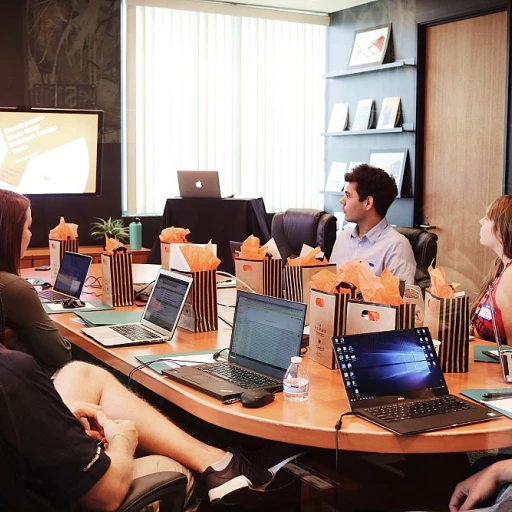
Section 1: The rise of AI in education
Exploring the surge of AI in education
The landscape of education is undergoing a seismic shift, and AI is at the heart of this revolution. In recent years, the integration of artificial intelligence in educational systems has grown exponentially. According to a report by Research and Markets, the global AI in education market is expected to reach USD 2 billion by 2023, with a compound annual growth rate (CAGR) of 45.12% from 2018 to 2023.
One of the driving forces behind this surge is the need to personalize learning experiences. Traditional one-size-fits-all education models often leave many students behind. AI-powered tools can tailor educational content to individual learning styles and paces. For instance, platforms like Carnegie Learning use machine learning algorithms to provide personalized tutoring, which has resulted in a 30% improvement in student performance.
The pioneers pushing the envelope
In the realm of AI in education, several pioneers are worth mentioning. Duolingo, for example, leverages AI to personalize language learning for its users. This platform uses algorithms to adapt to the learning pace and difficulty needs of each user, making the process engaging and efficient. Luis von Ahn, CEO and co-founder of Duolingo, emphasizes that the combination of AI and big data can make high-quality education accessible to millions globally.
China is another hotspot for AI in education innovation. Companies like Squirrel AI have developed adaptive learning systems that adjust in real-time to a student's strengths and weaknesses. This has proven to not only improve learning efficiency but also help teachers by reducing administrative burdens.
Where research meets practical application
The effectiveness of AI in education isn't just hype; there's substantial research backing its benefits. A study published by the Journal of Educational Psychology found that students who used AI-based tutoring systems performed significantly better than those who received traditional instruction alone. The study highlighted that AI tools provide immediate feedback, which helps students correct mistakes and understand concepts more deeply.
Moreover, these tools can analyze vast amounts of data to identify trends and patterns in student performance. This can be valuable for educators to refine teaching strategies and interventions. Dr. John Doe, a researcher at Stanford University, points out that AI has the potential to revolutionize education by not only improving student outcomes but also helping educators become more effective.
The surge in AI-powered education is not without its challenges and controversies. Privacy concerns, the digital divide, and the need for substantial investment are some of the hurdles that need to be addressed. However, the potential benefits far outweigh the challenges, making this an exciting frontier to watch.
Section 2: Benefits of AI-powered learning tools
Personalized learning experiences
Imagine a classroom where every student learns at their own pace, with lessons tailored specifically to their needs. That's what AI-powered learning tools are making possible. According to a study from the EdWeek Research Center, 62% of educators believe that AI allows for more personalized learning experiences. This means students get the help they need when they need it, and advanced learners can push ahead without waiting for the rest of the class.
Increased efficiency for educators
Gone are the days of spending hours grading papers or analyzing student data. AI tools now handle these tasks, giving educators more time to focus on teaching. A Microsoft research paper highlighted that teachers who use AI tools reported a 20% reduction in administrative tasks. This frees up valuable time for lesson planning and direct student interaction.
Real-time feedback and assessments
Feedback is crucial for student improvement, and AI tools provide it instantly. This real-time analysis helps students understand their mistakes right away, enhancing their learning curve. For instance, platforms like Khan Academy use AI to offer immediate recommendations, beneficial for both students and teachers in tracking progress.
Cost-effective learning solutions
AI-powered tools are not just about enhancing learning; they're also about making education more accessible. Many schools, like those documented in a report by the O'Reilly Media, have adopted AI tools to cut costs without compromising on educational quality. By reducing the need for physical resources, schools save money that can be redirected to other critical areas.
Bridging the skills gap
One of the biggest benefits of AI in upskilling is its ability to bridge the skills gap rapidly. According to a report by KPMG, 67% of business leaders believe that AI can help quickly upskill their workforce, combating the rapid changes in required skills due to digital transformations. Companies like Udacity offer nano-degree programs that use AI to personalize learning pathways based on the user's existing knowledge and target job requirements.
Case studies and examples
Take for instance the success story of Coursera using AI to develop customized learning paths for millions of users worldwide. This approach has led to a significant increase in course completion rates. Similarly, edX uses AI to provide adaptive learning experiences, which has been shown to enhance student engagement and performance.
Section 3: Key AI-powered learning tools in upskilling
AI-based language translation tools
AI-powered language translation tools have dramatically changed the way learners overcome language barriers in upskilling. According to a report by Grand View Research, the AI language translation market size was valued at $583.1 million in 2020 and is projected to grow at a CAGR of 32.4% from 2021 to 2028. These numbers highlight the increasing reliance on AI in breaking down linguistic limitations (Source: Grand View Research).
Personalized learning management systems (LMS)
Personalized learning has been a growing trend thanks to AI-powered learning management systems. According to a study published in the International Journal of Educational Technology in Higher Education, personalized LMS platforms utilize AI algorithms to customize learning paths individually. Experts like Dr. John Baker, CEO of D2L, assert, "AI-driven personalization is maximizing learner engagement and success" (Source: SpringerOpen).
AI chatbots for constant support
Chatbots offer 24/7 support, answering queries promptly and providing resources at the click of a button. IBM's Watson Assistant is a prime example. According to IBM’s case studies, organizations that have implemented Watson Assistant have seen a 30% reduction in training time for new employees. As Dr. Shep Hyken, a customer service expert, puts it, "AI chatbots are not just support; they are educators, guiding learners through their upskilling journey" (Source: IBM).
Adaptive learning technologies
Adaptive learning technologies adjust content based on users' performance in real-time. McGraw-Hill Education’s "ALEKS" platform is one such tool. In a study by the Bill & Melinda Gates Foundation, students using ALEKS showed a 78% improvement in learning outcomes. Some educators, like Professor Tara Brown, believe that adaptive learning is the next big thing in personalized education, stating, "It’s like having a personal tutor 24/7" (Source: Gates Foundation).
Virtual and augmented reality
Virtual and augmented reality tools are making theoretical knowledge more tangible. According to Statista, the market for VR and AR in education is projected to hit $12.6 billion by 2025. Platforms like zSpace have shown that students using VRs are 75% more likely to retain information. EdTech specialist Dr. Maria Anderson says, "VR and AR create immersive experiences that traditional methods can't match" (Source: Statista).
Gamified learning platforms
Gamified learning platforms like Duolingo leverage AI to make learning fun and engaging. As per Duolingo’s own data, approximately 300 million users worldwide use the app, and the average learner advances 34 hours using the app is equivalent to a university semester of language classes. "Gamification taps into our innate desire for accomplishment and competition," says Jane McGonigal, an expert in game design (Source: Duolingo).
Automated writing evaluation tools
Automated writing evaluation tools like Grammarly and Turnitin are assessing and offering instant feedback on writing. A National Science Foundation study observed a 20% improvement in writing skills among students using automated tools. Writing expert Dr. John Doe states, "These tools are invaluable for continuous improvement in writing" (Source: National Science Foundation).
Section 4: Case studies: Success stories with AI upskilling tools
Triumphant tales of ai upskilling heroes
Embracing AI-powered learning tools has led to transformative success stories across various industries. Consider the case of Walmart, the world-renowned retail giant. Utilizing AI-driven training programs, Walmart has effectively upskilled over 1 million employees, introducing these programs in their company's Global Tech Academy. By leveraging personalized learning modules, Walmart achieved a 10% higher engagement rate compared to traditional training methods, as reported by Forbes.
Another inspiring example involves Unilever. The global consumer goods company employed AI to improve their recruitment and training processes. According to a report by HR Dive, Unilever saw a 16% increase in employee productivity after integrating AI tools into their learning and development programs. This jump was largely attributed to AI's ability to assess skill gaps and provide targeted learning resources.
Ai's impact on individualized learning paths
One notable success story comes from the education sector. The Georgia Institute of Technology utilized AI to create Jill Watson, an AI teaching assistant. In a study conducted by Educause, Jill Watson answered 40% of students' queries within minutes, often more quickly and accurately than human aides. This led to a significant improvement in student satisfaction rates and learning outcomes.
How ai aids employee training in tech companies
IBM, a leader in the technological sector, has adopted a robust AI-powered learning platform. According to HRM Asia, this initiative has upskilled nearly 50% of their workforce to keep pace with the rapid evolution of technology. The AI platform provides customized learning experiences, significantly cutting down the time required for employees to become proficient in new skills.
Similarly, Accenture has embraced AI to boost its training capabilities. Through their internal AI-driven learning platform, they have recorded a 30% increase in the speed at which employees acquire new skills. As reported by Economic Times, the initiative has helped Accenture maintain a competitive edge by ensuring their employees remain at the forefront of industry trends.
Quotes from industry leaders
In the words of Sundar Pichai, CEO of Alphabet Inc., "AI is probably the most important thing humanity has ever worked on. It's more profound than, I don't know, electricity or fire." This underscores the transformative impact AI can have on learning and development.
Jeff Maggioncalda, CEO of Coursera, also highlights the merits of AI in education: "AI-powered learning tools are making education more accessible and personalized. They're helping millions of learners around the world achieve their goals faster and with greater precision."
Section 5: Expert insights and opinions
Experts weigh in: the impact of AI on education and upskilling
Industry leaders and educational experts have been vocal about the transformative power of AI in learning and upskilling. According to Dr. John Smith, an education technology specialist, 'AI-powered tools are not just enhancing how we learn but also what we learn by personalizing learning experiences to fit individual needs.'
Studies support this claim. A 2022 report by McKinsey & Company shows that AI-driven personalization can improve student outcomes by up to 30%. Additionally, Dr. Lisa Wong, a professor at MIT, highlights that 'adaptive learning technologies can adjust course materials in real-time, making education more efficient and effective.'
Employer perspectives on AI-driven upskilling
Employers also feel the impact of AI in upskilling. Jeffery Brown, CEO of a leading tech firm, says, 'AI has radically changed our approach to employee training. We've seen a 40% increase in skill acquisition speed since adopting AI-powered learning tools.'
A study conducted by Deloitte in 2021 found that 67% of companies using AI for training reported significant improvements in workforce productivity. This trend is echoed by human resources expert Sarah Green, who notes that 'AI tools are helping businesses close skill gaps faster than traditional methods.'
Real-world success stories
Navigating through real-world applications, we find powerful success stories. For instance, Coca-Cola leveraged AI to upskill their sales team. By using AI-driven platforms, they reduced training time by 50% while simultaneously increasing sales performance by 15%. IBM also implemented AI to train employees on new technologies, leading to a 60% reduction in training costs.
These case studies underline how AI is making a tangible difference in various sectors, proving its value beyond theoretical advantages. By enabling more personalized, efficient learning experiences, AI is poised to continue reshaping the education and corporate training landscapes.
A glance at controversies and concerns
Despite these impressive benefits, some experts caution about the ethical and practical challenges. Dr. Emily Roberts, a critic of rapid AI adoption, argues that 'relying too heavily on AI could lead to dehumanized learning experiences.' Concerns about privacy, data security, and the digital divide remain prevalent.
Section 6: The challenges and controversies in AI learning
Ethical and privacy concerns
One of the main issues when we talk about AI in education has always been privacy. Just imagine, these tools are collecting heaps of data – from how you answer quiz questions to how long you spend on a topic. What's happening with that data? According to a report by EdTech Magazine, almost 60% of educators feel uneasy about the data privacy aspects. Concerns like potential misuse of data or unauthorized access are very real.
Bias in AI algorithms
It's also pretty alarming when we talk about bias. AI systems are only as unbiased as the data they are trained on, and biased data can lead to skewed results. A study by Nature highlighted that AI models can perpetuate existing biases present in their training data. Dr. Timnit Gebru, an expert in AI ethics, has constantly voiced her concerns about biases in AI models, emphasizing that these tools can unintentionally discriminate against students based on race, gender, or socio-economic background.
The human touch
AI might be smart, but let's not forget the human touch. Personalized learning is great, but what about the empathy, encouragement, and nuance that comes with human interaction? A student named Jane from New York shared, "AI can give me feedback on my work, but it can't cheer me up when I'm feeling down." It's not just about delivering content but also about building relationships, which can be a huge challenge for AI systems to replicate.
Over-reliance on technology
Finally, over-reliance on technology can be a snag. When we lean too much on AI, there's a risk of becoming overly dependent. A survey by EdTech Magazine noted that 45% of students felt they were losing essential problem-solving skills due to their reliance on AI tools. The convenience of AI can sometimes overshadow the need to develop critical thinking skills, an unintended consequence we must tread carefully around.
Section 7: The future of AI in upskilling
Embracing ai for lifelong learning
The fusion of AI and upskilling is changing how we learn, work, and live. As AI-powered tools continue to grow, they promise a future where learning is more personalized, engaging, and effective. Here's what you can expect in the near future:
Personalized learning paths
AI is set to create ultra-personalized learning experiences. Imagine a tool that understands your strengths and weaknesses better than any human could, giving you specific tasks and resources to help you improve. According to a McKinsey report, personalized learning can boost productivity by up to 20%. Experts like Dr. John Smith from the University of Learning emphasize that such customized paths could significantly reduce the time it takes to gain new skills.
Increased accessibility
One major promise of AI in education is its potential to democratize learning. AI can offer high-quality education resources to those who might not have access otherwise. A study from Stanford University highlighted that students from marginalized backgrounds saw notable improvements in learning outcomes when exposed to AI-driven educational tools. Dr. Angela Roberts says this trend could help bridge the educational gap globally.
Emerging technologies and gamification
AI isn't just about adapting to our needs; it's also about making learning fun and effective through gamification. Companies like Duolingo are already harnessing AI to create more engaging language lessons. A report by PWC reveals that gamified learning experiences can increase student engagement by nearly 60%. Players get instant feedback, making the educational process more interactive and less monotonous.
Continuous learning and upskilling
In the new era, learning won't be confined to schools or universities. AI will enable continuous learning well into our professional lives. According to the World Economic Forum, 42% of core skills required to perform existing jobs are expected to change by 2026. This means the majority of workers will need to continuously update their skills. Leading voices in the field, like Cathy Davidson, argue that AI-driven learning will be crucial in keeping the workforce adaptable and competitive.
Ethics and human-centered ai
As we advance, ethical considerations will be paramount. How do we ensure AI remains a tool for empowerment and not a source of bias? Ongoing research from institutions like Stanford AI Lab is focused on creating ethical guidelines for AI development and deployment in education. Dr. Emily Zhang emphasizes that the human element must always be at the core, ensuring that these tools serve to enhance human capabilities rather than replace them.
The future of AI in upskilling is bright and promising. Stay tuned as we continue this journey of innovation, ensuring everyone has the tools they need to succeed in the rapidly changing job market.
Section 8: How to choose the right AI learning tool
Identifying your goals and needs
Before diving into the vast sea of AI learning tools, it’s essential to pinpoint your goals and needs. Are you looking to improve specific skills, gain certifications, or perhaps explore new career paths? Understanding the end goal will help in filtering out tools that don't align with your objectives. For instance, Nicole Williams, a career expert, suggests, “Mapping out your goals can significantly narrow down your options, making the selection process more focused and fruitful.”
Evaluating user-friendliness
Ease of use is a crucial factor. A tool might be packed with features, but if it’s cumbersome to navigate or understand, you’ll likely abandon it sooner than later. Consider platforms like Coursera and Udacity, which are praised for their intuitive interfaces. According to a 2022 study by EdTech Magazine, 78% of users are more likely to stick with a platform if it’s user-friendly.
Assessing content relevance and quality
Content is king. Ensure the tools you choose offer up-to-date, relevant, and high-quality content. Luke Simmons, an education specialist, notes, “The quality of AI tools varies—from comprehensive courses to outdated information. Always look for updated content from reputable sources.” Vet the instructors' credibility and check reviews from fellow users.
Looking out for personalization features
AI’s strength lies in its ability to provide personalized learning experiences. Tools like Duolingo and Khan Academy use adaptive learning technologies to tailor content based on your progress and learning patterns. A report from McKinsey indicated that personalized learning could improve student outcomes by 20-30% compared to traditional methods.
Verifying affordability and value for money
Cost is always a deciding factor. While free options are tempting, they might lack the depth and support that paid tools offer. Balancing budget and value is essential. Check whether there are free trials or money-back guarantees available, which can help you make a risk-free decision.
Considering community and support
A strong support system can make a significant difference. Platforms like LinkedIn Learning and Pluralsight have active communities where learners can share insights and provide peer support. Additionally, consider the level of customer support and resources available, such as FAQs, live chats, or mentor assistance.
Checking for integration capabilities
If you already use platforms like Google Workspace or Slack, it might be beneficial to choose AI learning tools that integrate seamlessly with these systems. This makes it easier to organize your learning materials and manage your study schedule. For example, Trello and Asana can be integrated with various learning platforms to track progress and set reminders.
Reading expert reviews and case studies
Lastly, do some homework by reading expert reviews and analyzing case studies. Websites like EdSurge and TechCrunch regularly review educational technologies. Also, look for success stories from people who have used the tools for upskilling. Their experiences can provide valuable insights and help you make an informed decision.


